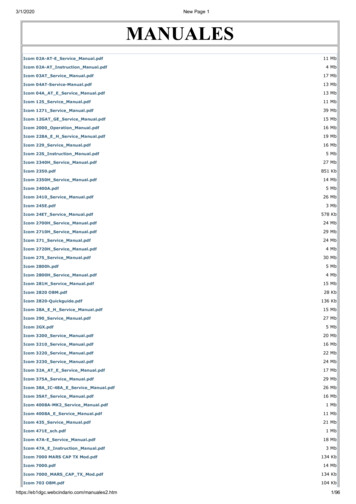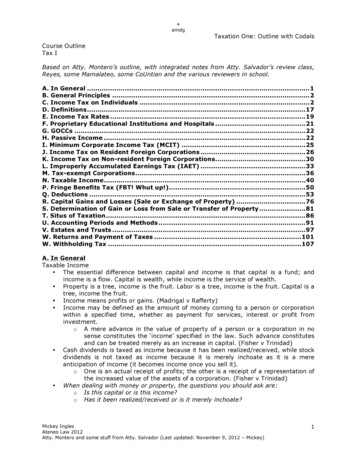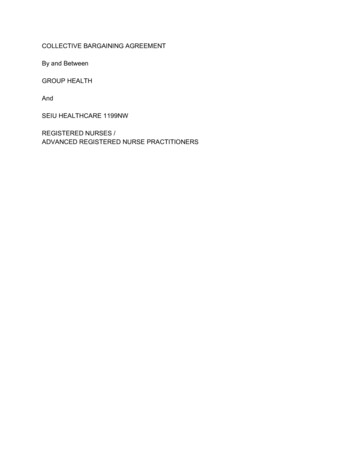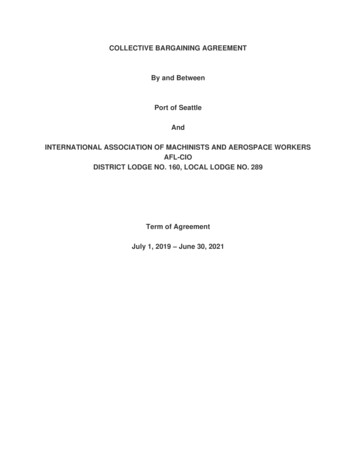
Transcription
Collective bargaining agreement pdf philippines
Example of collective bargaining agreement in the philippines. Collective bargaining agreement philippines 2018. Collective bargaining agreement philippines 2019. Collective bargaining agreement philippines ppt. Collective bargaining agreement philippines seafarers. Collective bargaining agreement philippines 2021. Collective bargainingagreement philippines sample. Collective bargaining agreement philippines pdf.It is the state policy to promote and emphasize the primacy of collective bargaining in setting working conditions or the creation of a mechanism by which employers and recognized and certified labor unions bargain collectively.The registration of Collective Bargaining Agreement (CBA) refers to the process of determining whether theapplication for registration complies with the requirements provided under DOLE Department Order No. 40-03, as amended. CLASSIFICATION: SIMPLE CLIENT(S) / APPLICANT(S):Sole and Exclusive Bargaining Agent (SEBA) The registration of Collective Bargaining Agreements (CBAs) is closely monitored as an indicator of harmonious labormanagement relations and industrial peace in the country. A collective bargaining is a process where both parties, labor and management, agrees to fix and administer terms and conditions of employment which must not be below the minimum standards fixed by law. This also sets a mechanism for resolving the parties’ grievances. Specifically, a CBAis a contract executed upon incorporating the agreements reached after negotiations with the employer and the exclusive bargaining representative of the employees with respect to wages, hours or work and all other terms and conditions of employment. As such, a CBA includes economic provisions and non-economic provisions. Economic provisionsinclude monetary value of wage increases, loan benefits, bonuses, allowances, retirement plans, and other fringe benefits. On the other hand, non-economic clauses include union security clauses, grievance procedures, labor-management cooperation schemes, and other provisions without monetary value. This three-part series of LABSTAT Updatespresents data on CBAs gathered and tabulated from the administrative documents filed at the Bureau of Labor Relations (BLR) of the Department of Labor and Employment (DOLE). This first issue specifically highlights the profile of the registered CBAs in 2018. Excluded from this analysis are CBAs filed from seafarer unions/associations due torelatively high amount and different currencies in their CBA provisions. Majority or 64.8 percent of the registered CBAs in 2018 were renewals A total of 162 CBAs were registered by various labor organizations group in the country in 2018. Majority of the registered CBAs were renewals (64.8%) while about 22.8% percent applied CBAs for the firsttime. Meanwhile, 12.3 percent of the registered CBAs were supplemental/ renegotiated. (Figure 1)Categorized by scope of bargaining unit, almost all (90.7%) of the CBAs covered rank and file workers. On the other hand, supervisory level positions accounted for less than 10 percent of the total CBAs (9.3%). (Figure 2) More than half of the totalCBAs were negotiated by affiliated unions By union status, more than half (57.4%) of the total registered CBAs were negotiated affiliated unions or those unions that are linked with federation, national union or charted local. However, three of every seven CBAs (42.6%) were negotiated by independent unions that acquired own legal personality.(Figure 3) Read the full article. See more at the LabStat Updates landing page. LABSTAT Updates Vol. 25 No. 3 REPUBLIC ACT No. 875June 17, 1953 AN ACT TO PROMOTE INDUSTRIAL PEACE AND FOR OTHER PURPOSES (REPEALED BY PRESIDENTIAL DECREE NO. 442) SECTION 1. Declaration of Policy. - It is the policy this Act: (a)To eliminate the causes of industrial unrest by encouraging and protecting the exercise by employees of their right to self-organization for the purpose of collective bargaining and for the promotion of their moral, social, and economic well-being. (b) To promote sound stable industrial peace and the advancement of the general welfare, health andsafety and the best interests of employers and employees by the settlement of issues respecting terms and conditions of employment through the process of collective bargaining between employers and representatives of their employees. (c) To advance the settlement of issues between employers and employees through collective bargaining bymaking available full and adequate governmental facilities for conciliation and mediation to aid and encourage employers and representatives of their employees in reaching and maintaining agreements concerning terms and conditions of employment and in making all reasonable efforts to settle their differences by mutual agreement; and (d) Toavoid or minimize differences which arise between the parties to collective bargaining by prescribing certain rules to be followed in the negotiation and administration of collective bargaining agreements and by requiring the inclusion in any such agreement of provisions for adequate notice of any proposed changes in the terms of such agreements,for the final adjustment of grievances or questions regarding the application or interpretation of such agreements and other provisions designated to prevent the subsequent arising of such controversies. Section 2. Definitions. - As used in this Act - (a) "Court" means the Court of Industrial Relations established by Commonwealth Act Numbered Onehundred and three, as amended, unless another Court shall be specified. (b) "Service" means the Conciliation Service of the Department of Labor. (c) The term "employer" includes any person acting in the interest of an employer, directly or indirectly but shall not include any labor organization (otherwise than when acting as an employer) or anyoneacting in the capacity of officer or agent of such labor organization. (d) The term "employee" shall include any employee and shall not be limited to the employee of a particular employer unless the Act explicitly states otherwise and shall include any individual whose work has ceased as a consequence of, or in connection with, any current labordispute or because of any unfair labor practice and who has not obtained any other substantially equivalent and regular employment. (e) "Labor organization" means any union or association of employees which exists, in whole or in part, for the purpose of collective bargaining or of dealing with employers concerning terms and conditions ofemployment. (f) "Legitimate labor organization" means any labor organization registered by the Department of Labor, and includes any branch or local thereof. (g) The term "company union" means a labor organization the formation or administration of which has been assisted by any Act defined in Section four as an unfair labor practice. (h)"Representative" includes a legitimate labor organization or any officer or agent of such organization, whether or not employed by the employer or employees whom he represents. (i) The term "unfair labor practice" means any unfair labor practice listed in section four. (j) The term "labor dispute" includes any controversy concerning terms, tenure orconditions of employment, or concerning the association or representation of persons in negotiating, fixing, maintaining, changing, or seeking to arrange terms or conditions of employment, regardless of whether the disputants stand in the proximate relation of employer and employee. (k) "Supervisor" means any person having authority in theinterest of an employer, to hire, transfer, suspend, lay-off, recall, discharge, assign, recommend, or discipline other employees, or responsibly to direct them, and to adjust their grievances, or effectively to recommend such acts if, in connection with the foregoing, the exercise of such authority is not of a merely routinary or clerical nature but requiresthe use of independent judgment. (l) "Strike" means any temporary stoppage of work by the concerted action of employees as a result of an industrial dispute. (m) "Lockout" means the temporary refusal of any employer to furnish work as a result of an industrial dispute. Section 3. Employees' Right to Self-Organization. - Employees shall have theright to self-organization and to form, join or assist labor organizations of their own choosing for the purpose collective bargaining through representatives of their own choosing and to engage in concerted activities for the purpose of collective bargaining and other mutual aid or protection. Individuals employed as supervisors shall not be eligible formembership in a labor organization of employees under their supervision but may form separate organizations of their own. Section 4. Unfair Labor Practices. - (a) It shall be unfair labor practice for an employer: (1) To interfere with, restrain or coerce employees in the exercise of their rights guaranteed in section three; (2) To require as a conditionof employment that a person or an employee shall not join a labor organization or shall withdraw from one to which he belongs; (3) To initiate, dominate, assist in or interfere with the formation or administration of any labor organization or to contribute financial or other support to it; (4) To discriminate in regard to hire or tenure of employment ofany term or condition of employment to encourage or discourage membership in any labor organization: Provided, That nothing in this Act or in any other Act or statute of the Republic of the Philippines shall preclude an employer from making an agreement with a labor organization to require as a condition of employment membership therein, if suchlabor organization is the representative of the employees as provided in section twelve; (5) To dismiss, discharge, or otherwise prejudice or discriminate against an employee for having filed charges or for having given or being about to give testimony under this Act; (6) To refuse to bargain collectively with the representatives of his employees subjectto the provisions of section thirteen and fourteen. (b) It shall be unfair labor practice for organization or its agents: (1) To restrain or coerce employees in the exercise of their rights under section three, provided that this paragraph shall not impair the right of a labor organization to prescribe its own rules with respect to the acquisition or retention ofmembership therein; (2) To cause or attempt to cause an employer to discriminate against an employee in violation of subsection (a) (4) or to discriminate against an employee with respect to whom membership in such organization has been denied or terminated on some ground other than the usual terms and conditions under which membership orcontinuation of membership is made available to other members. (3) To refuse to bargain collectively with the employer, provided it is the representative of the employees subject to the provisions of sections thirteen and fourteen. (4) To cause or attempt to cause an employer to pay or deliver or agree to pay or deliver any money or other thing ofvalue, in the nature of an exaction, for services which are not performed or not to be performed. Section 5. Unfair Labor Practice Cases. - (a) The Court shall have jurisdiction over the prevention of unfair labor practices and is empowered to prevent any person from engaging in any unfair labor practice. This power shall be exclusive and shall not beaffected by any other means of adjustment or prevention that has been or may be established by an agreement, code, law or otherwise. (b) That Court shall observe the following procedure without resort to mediation and conciliation as provided in section four of Commonwealth Act Numbered One hundred and three, as amended, to any pre-trialprocedure. Whenever it is charged by an offended party or his representative that any person has engaged or is engaging in any such unfair labor practice, the Court or any agency or agent designated by the Court must investigate such charge and shall have the power to issue and cause to be served upon such person a complaint stating the chargesin that respect and containing a notice of hearing before the Court or a member thereof, or before a designated Hearing Examiner at the time and place fixed therein not less than five nor more than ten days after serving the said complaint. The person complained of shall have the right to file an answer to the complaint and to appear in person orotherwise (but if the Court shall so request, the appearance shall be personal) and give testimony at the place and time fixed in the complaint. In the discretion of the Court, a member thereof or a Hearing Examiner, any other person may be allowed to be intervene in the said proceeding and to present testimony. In such proceeding, the rules ofevidence prevailing in courts of law or equity shall not be controlling and it is the spirit and intention of this Act that the Court and its members and Hearing Examiners shall use every and all reasonable means to ascertain the facts in each case speedily and objectively and without regard to technicalities of law or procedure. In rendering itsdecisions, the Court shall not be bound solely by the evidence presented during the hearing but may avail itself of all other means such as (but not limited to) ocular inspections and questioning of well-informed persons which results must be made a part of the record. In the proceeding before the Court or a Hearing Examiner thereof, the parties shallnot be required to be represented by legal counsel and it shall be the duty and obligation of the Court or Hearing Examiner to examine and cross-examine witnesses on behalf of the parties and to assist in the orderly presentation of the evidence. (c) The testimony taken by the Court or such member of the Court or the Hearing Examiner shall bereduced to writing and filed with the Court. If, after investigation, the Court shall be of the opinion that any person named in the complaint has engaged in or engaging in any unfair labor practice, then the Court shall state its findings of fact and shall issue and cause to be served on such person an order requiring such person to cease and desist fromsuch unfair labor practice and take such affirmative action as will effectuate the policies of this Act, including (but not limited to) reinstatement of employees with or without back-pay and including rights of the employees prior to dismissal including seniority. Such order may further require such person to post the Court's order and findings in a placeavailable to all the employees and to make reports from time to time showing the extent to which the Court's order has been complied with. If after investigation the Court shall be of the opinion that no person named in the complaint has engaged in or is engaging in any such unfair labor practice, then the Court shall state its findings of fact and shallissue an order dismissing the said complaint. If the complaining party withdraws its complaint, the Court shall dismiss the case. (d) The Court shall decide all incidental motions raised in any unfair labor practice cases within fifteen days from submission of the same. All other matters relative to such disputes including the main case shall be decided
within thirty days after the submission of the case. This provision shall be considered as mandatory in character. (e) The Court or any judge thereof shall have all the inherent power of a Court of Justice provided in Rule One hundred and twenty-four of the rules of court as well as the power to punish direct and indirect contempts as provided in Rulesixty-four of the Rules of Court, under the same procedure and penalties provided therein. Any violation of any order or decision of the Court shall constitute contempt of court. Section 6. Unfair Labor Practice Cases - Appeals. - Any person aggrieved by any order of the Court may appeal to the Supreme Court of the Philippines within ten days afterthe issuing of the Court's order but this appeal shall not stay the order of the Court and the person or persons named in the Court order shall meanwhile obey said order. The findings of the Court with respect to questions of fact if supported by substantial evidence on the record shall be conclusive. The appeal to the Supreme Court shall be limited toquestions of law only. Section 7. Fixing Working Conditions by Court Order. - In order to prevent undue restriction of free enterprise for capital and labor and to encourage the truly democratic method of regulating the relations between the employer and employee by means of an agreement freely entered into in collective bargaining, no court of thePhilippines shall have the power to set wages, rates of pay, hours of employment, or conditions of employment except as in this Act is otherwise provided and except as is provided in Republic Act Numbered Six Hundred two and Commonwealth Act Numbered Four hundred forty-four as to hours of works. Section 8. Private Contracts ContraveningEmployee Rights. - Every undertaking or promise hereafter made, whether written or oral, express or implied, constituting or contained in any contract or agreement of hiring or employment between any individual firm, company, association or corporation and any employee or prospective employee of the same shall be null and void if thereby - (a)Either party to such contract or agreement undertakes or promises not to join, become or remain a member of any labor organization or of any employer organization; or (b) Either party to such contract or agreement undertakes or promises that he will withdraw from an employment relation in the event that he joins, becomes or remains a member ofany labor organization or of any employer organization. (c) Either party undertakes or promises to permit the commission of any of the unfair labor practices defined in section four hereof. Section 9. Injunctions in Labor Disputes. - (a) No Court, Commission or Board of the Philippines shall have jurisdiction, except as provided in section ten of this Act,to issue any restraining order, temporary or permanent injunction in any case involving or growing out of labor dispute to prohibit any person or persons participating or interested in such dispute from doing, whether singly or in concert, any of the following acts: (1) Ceasing or refusing to perform any work or to remain in any relation of employment;(2) Becoming or remaining a member of any labor organization or of any employee organization regardless of any undertaking or promise as is described in section eight of this Act; (3) Paying or giving to, or withholding from, any person participating or interested in such labor dispute, any strike or unemployment benefits or insurance, or moneys orthings of value; (4) By all lawful means aiding any person participating or interested in any labor dispute who is being proceeded against in, or is prosecuting any action or suit in any court of the Philippines; (5) Giving publicity to the existence of, or the facts involved in any labor dispute, whether by advertising, speaking, patrolling, or by any methodnot involving fraud or violence; (6) Assembling peaceably to act or to organize to act in promotion of their interests in a labor dispute; (7) Advising or notifying any person of an intention to do any of the acts heretofore specified; (8) Agreeing with other persons to do or not to do any of the acts heretofore specified; and (9) Advising, urging, orotherwise causing or inducing without fraud or violence, the acts heretofore specified, regardless of any such undertaking or promise as is described in section eight of this Act. (b) No court of the Philippines shall have jurisdiction to issue a restraining order or temporary or permanent injunction upon the ground that any of the persons participatingor interested in a labor dispute constitute or are engaged in an unlawful combination or conspiracy because of the doing in concert of the acts enumerated in paragraph (a) above. (c) No officer or member of any association or organization, and no association or organization participating or interested in a labor dispute shall be held responsible orliable for the unlawful acts of individual officers, members, or agents, except upon proof of actual participation in, or actual authorization of such acts or of ratifying of such acts after actual knowledge thereof. (d) No court of the Philippines shall have jurisdiction to issue a temporary or permanent injunction in any case involving or growing out of alabor dispute, as herein defined except after hearing the testimony of witnesses in open court (with opportunity for cross-examination) in support of the allegations of a complaint made under oath, and testimony in opposition thereto, if offered, and except after finding of fact by the Court, to the effect: (1) That unlawful acts have been threatened andwill be committed unless restrained, or have been committed and will be continued unless restrained, but no injunction or temporary restraining order shall be issued on account of any threat or unlawful act excepting against the person or persons, association, or organization making the threat or committing the unlawful act or actually authorizing orratifying the same after actual knowledge thereof; (2) That substantial and irreparable injury to complainant's property will follow; (3) That as to each item of relief granted greater injury will be inflicted upon complainant by the denial of relief that will be inflicted upon defendants by the granting of relief; (4) That complaint has no adequate remedyat law; and (5) That the public officers charged with the duty to protect complainant's property are unable or unwilling to furnish adequate protection. Such hearing shall be held after due and personal notice thereof has been given, in such manner as the Court shall direct, to all known persons against whom relief is sought, and also to the chief ofthose public officials of the province or city within which the unlawful acts have been threatened or committed charged with the duty to protect complainant's property: Provided, however, That if a complainant shall also allege that, unless a temporary restraining order shall be issued without notice, a substantial and irreparable injury tocomplainant's property will be unavoidable, such a temporary restraining order may be issued upon testimony under oath, sufficient, if sustained, to justify the court in issuing a temporary injunction upon hearing after notice. Such a temporary restraining order shall be effective for no longer than fifty days and shall become void at the expiration ofsaid five days. No temporary restraining order or temporary injunction shall be issued except on condition that complainant shall first file an undertaking with adequate security in an amount to be fixed by the Court sufficient to recompense those enjoined for any loss, expense, or damage caused by the improvident or erroneous issuance of such orderor injunction, including all reasonable costs, (together with a reasonable attorney's fee) and expense of defense against the order or against the granting of any injunctive relief sought in the same proceeding and subsequently denied by the Court. The undertaking herein mentioned shall be understood to signify an agreement entered into by thecomplainant and the surety upon which a decree may be rendered in the same suit or proceeding against said complainant and surety, upon a hearing to assess damages of which hearing complainant and surety shall have reasonable notice, the said complainant and surety submitting themselves to the jurisdiction of the court for that purpose. Butnothing herein contained shall deprive any party having a claim or cause of action under or upon such undertaking from electing to pursue his ordinary remedy by suit at law or in equity. (e) No restraining order or injunctive relief shall be granted to any complainant who has failed to comply with any obligation imposed by law which is involved in thelabor dispute in question, or who has failed to make every reasonable effort to settle such dispute by negotiation or with the aid of any available governmental machinery of mediation or by voluntary arbitration. (f) No restraining order or temporary or permanent injunction shall be granted in a case involving or growing out of a labor dispute, excepton the basis of findings of fact made and filed by the court in the record of the case prior to the issuance of such restraining order or injunction; and every restraining order or injunction granted in a case involving or growing out of a labor dispute shall include only a prohibition of such specific act or acts as may be expressly complained of in the billof complaint or petition filed in such case and as shall be expressly included in said findings of fact made and filed by the court as provided herein: (1) A case shall be held to involve or to grow out of a labor dispute when the case involves persons who are engaged in the same industry, trade, craft, or occupation; or have direct or indirect intereststherein; or who are employees of the same employer; or who are members of the same or an affiliated organization of employers or employees; whether such dispute is (i) between one or more employees or association of employers and one or more employees or association of employees; (ii) between one or more employers or association of employersand one or more employees or association of employers; or (iii) between one or more employees or association of employees and one or more employees or association of employees; or when the case involves any conflicting or competing interests in "labor dispute" (as hereinbefore defined) of "persons participating or interested" therein (ashereinafter defined). (2) A person or association shall be held to be a person participating or interested in a labor dispute if relief is sought against him or it, and if he or it is engaged in the same industry, trade, craft, or occupation in which such dispute occurs, or has a direct or indirect interest therein, or is a member, officer, or agent of anyassociation composed in whole or in part of employers engaged in such industry, trade, craft, or occupation. Section 10. Labor Disputes in Industries Indispensable to the National Interest. - When in the opinion of the President of the Philippines there exists a labor dispute in an industry indispensable to the national interest and when such labordispute is certified by the President to the Court of Industrial Relations, said Court may cause to be issued a restraining order forbidding the employees to strike or the employer to lockout the employees, pending an investigation by the Court, and if no other solution to the dispute is found, the Court may issue an order fixing the terms and conditionsof employment. Section 11. Prohibition Against Strikes in the Government. - The terms and conditions of employment in the Government, including any political subdivision or instrumentality thereof, are governed by law and it is declared to be the policy of this Act that employees therein shall not strike for the purpose of securing changes ormodification in their terms and conditions of employment. Such employees may belong to any labor organization which does not impose the obligation to strike or to join in strike: Provided, however, That this section shall apply only to employees employed in governmental functions and not to those employed in proprietary functions of theGovernment including but not limited to government corporations. Section 12. Exclusive Collective Bargaining Representation of Labor Organizations. - (a) The labor organization designated or selected for the purpose of collective bargaining by the majority of the employees in an appropriate collective bargaining unit shall be the exclusiverepresentative of all the employees in such unit for the purpose of collective bargaining in respect to rates of pay, wages, hours of employment, or other conditions of employment: Provided, That any individual employee or group of employees shall have the right at any time to present grievances to their employer. (b) Whenever a question arisesconcerning the representation of employees, the Court may investigate such controversy and certify to the parties in writing the name of the labor organization that has been designated or selected for the appropriate bargaining unit. In any such investigation, the Court shall provide for a speedy and appropriate hearing upon due notice and if there isany reasonable doubt as to whom the employees have chosen as their representative for purposes of collective bargaining, the Court shall order a secret ballot election to be conducted by the Department of Labor, to ascertain who is the freely chosen representative of the employees, under such rules and regulations as the Court may prescribe, atwhich balloting representatives of the contending parties shall have the right to attend as inspectors. Such a balloting shall be known as a "certification election" and the Court shall not order certifications in the same unit more often than once in twelve months. The organization receiving the majority of votes cast in such election shall be certified asthe exclusive bargaining representative of such employees. (c) In an instance where a petition is filed by at least ten per cent of the employees in the appropriate unit requesting an election, it shall be mandatory on the Court to order an election for the purpose of determining the representative of the employees for the appropriate bargaining unit. (d)When requested to bargain collectively, an employer may petition the Court for an election if there has been no certification election held during the twelve months prior to the date of the request of the employees, and if the employer has re
Collective bargaining agreement philippines pdf. . (Figure 3) Read the full article. See more at the LabStat Updates landing page. LABSTAT Updates Vol. 25 No. 3 REPUBLIC ACT No. 875 June 17, 1953 AN ACT TO PROMOTE INDUSTRIAL PEACE AND FOR OTHER PURPOSES (REPEALED BY PRESIDENTIAL DECREE NO. 442) SECTION 1. . " means a labor organization the .
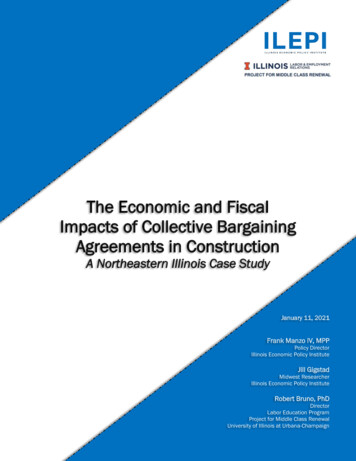
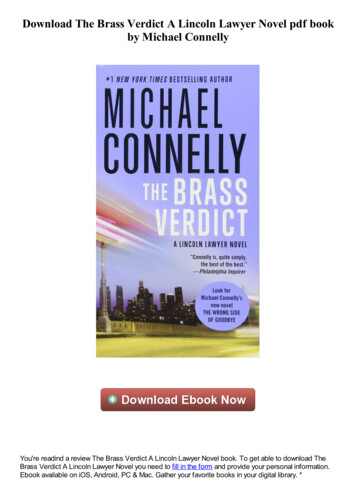

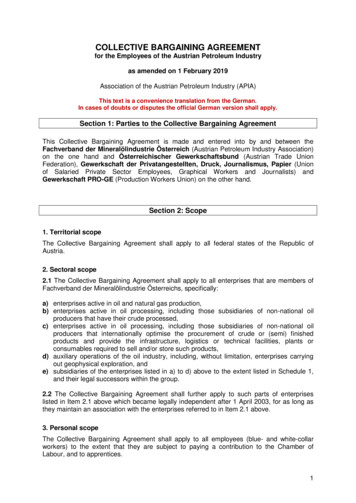
![Labour Act [Chapter 28:01] and Selected Regulations - Zctu](/img/48/labour-20act.jpg)

